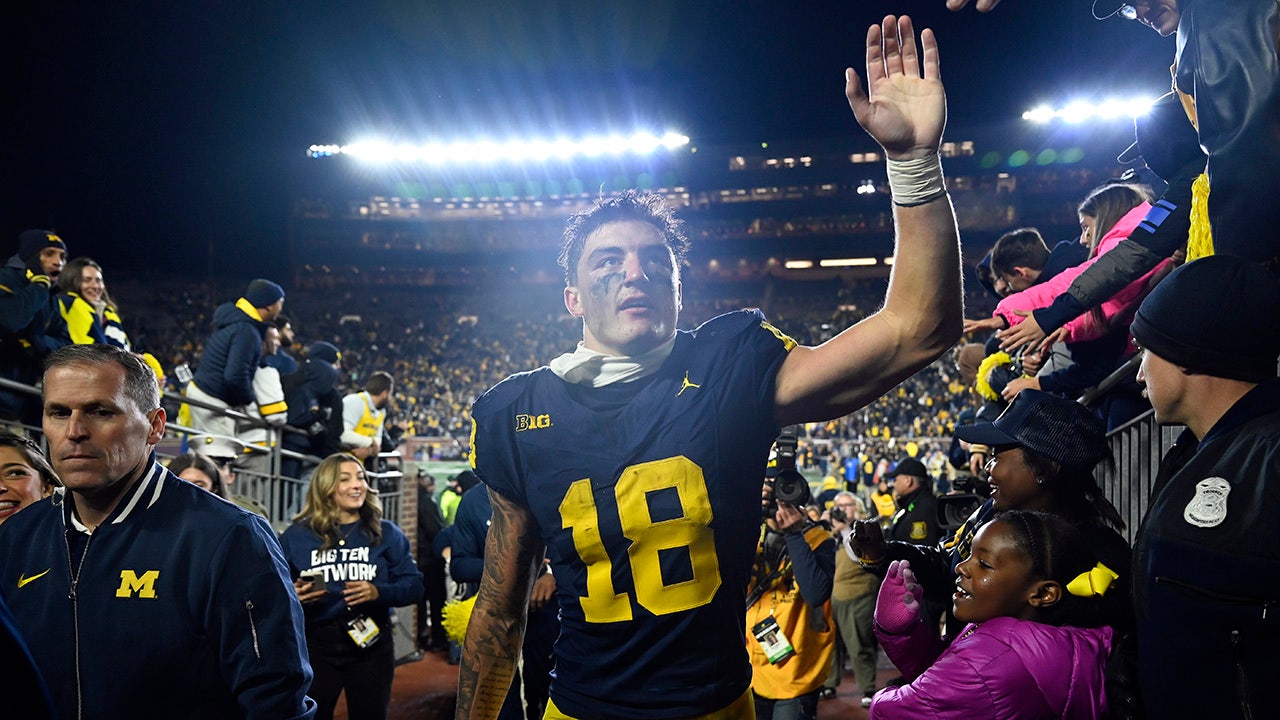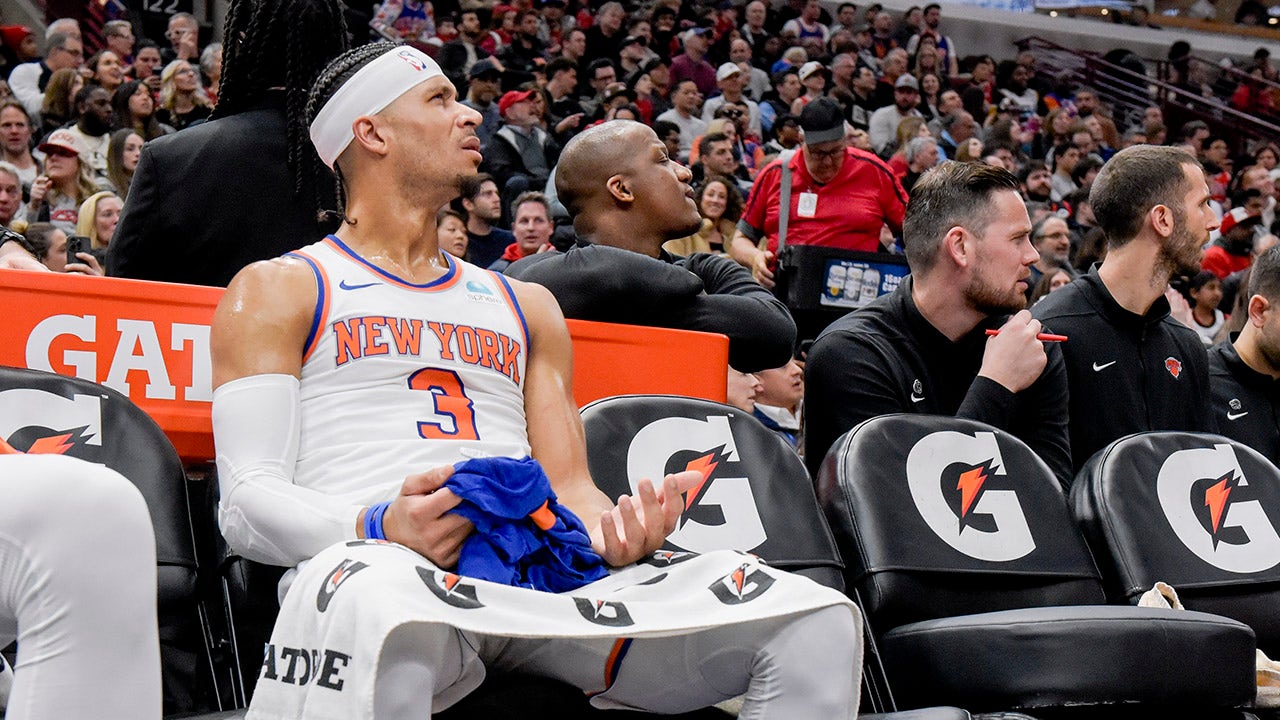TORONTO — Thomas can’t remember what he said or heard during a meeting last month.
That’s because only minutes before, he was informed by Sportsnet anchor Evanka Osmak that he had won half a million dollars.
A few days earlier Thomas, who asked to use a pseudonym to preserve his privacy, bought a ticket to the Jays Care 50/50 raffle on a whim after a marketing email landed in his inbox. And then he forgot all about it.
“When you play these things,” he said, “you don’t really anticipate you’re going to win.”
When his phone rang while at work at his IT job on May 13, he nearly rejected the call from a private number. “I’m glad I didn’t,” Thomas said. Instead, he picked up to hear Osmak, the host of Sportsnet Central, inform him that he was the winner of the 50/50 grand prize. She asked if he knew how much he had just won. Thomas responded that he thought $50,000 would be great. “Then she said, ‘Yeah, $50,000 would be great. But it’s actually (CAD) $538,908.’”
Thomas didn’t have long to process his shock. He had to head into a meeting right afterwards.
“I don’t know what I said. I was clearly talking and answering questions, but my mind was completely elsewhere, just thinking, ‘Is this real? Did that just actually happen?’” said Thomas, who had only entered the 50/50 a handful of times prior.
Over the years, the Toronto Blue Jays’ 50/50 raffle has become known for its eye-popping jackpots and life-changing winnings. The jackpots have caught the eyes of many in baseball, including former Cleveland Guardians manager Terry Francona, who saw the $82,000 total during the 2016 ALCS and told catcher Mike Napoli, “We gotta get in on that.”
The 50/50 raffle, run by Jays Care Foundation, the charitable arm of the Blue Jays, awards half of the ticket sales to a winner, while the other half goes to charity. It has crowned nine millionaires so far. Already the biggest raffle of its kind in Major League Baseball, it strives to set new records every year.
One of those nine millionaires is a man named Andrew. He had just gotten home from the cardiologist when his phone rang. Thankfully, his heart was in good condition when a representative from Jays Care called.
When Andrew answered, he was asked if he received a call earlier that day and was told to check his voicemail. When he did, there was a message from Blue Jays broadcaster Buck Martinez. In his unmistakable raspy voice, Martinez informed Andrew that he was the lucky winner of $2.6 million.
“It was quite an amazing moment,” said Andrew, who asked to be identified only by his first name to protect his privacy.
The win came at an especially opportune moment for Andrew, who said he had been dealing with personal challenges.
“It’s been a very sombre last few years, and it was nice to get some extremely good news,” Andrew said. “And this money would help me do a lot of positive things.”

Andrew, above, initially missed the call informing him that he was a 50/50 winner. (Courtesy of Jays Care)
The introduction of online 50/50 ticket sales across Ontario in 2019 helped expand the raffle’s reach. When the pandemic hit in 2020, and the Blue Jays played their games away from the Rogers Centre, Jays Care pivoted from daily draws to homestand jackpots and mega-jackpots, a move that allowed the pots to grow larger and increased the interest. Together, those changes ushered in an era of massive growth with the Jays Care 50/50, producing the top-10 biggest jackpots in MLB history — all since 2019.
“That’s something we’re extremely proud of,” said Jays Care executive director Robert Witchel. “We want to make our programs the best in class. We want to reach as many kids as possible.”
In 2021, the Jays Care 50/50 recorded $12 million in total tickets sold — with half going to the winners and the other half to the charity. By 2023, total ticket sales were up to $33 million, culminating with an Ontario- and MLB-record jackpot of $5.9 million last September. (Congratulations to Mini from Toronto.)
Already this season, the 50/50 has awarded four grand prize jackpots totaling more than $4.3 million, along with hundreds of early-bird prizes that include signed memorabilia, Blue Jays tickets and smaller cash prizes. Next month’s Canada Day mega-jackpot will award 10 grand prize winners who will evenly split the pot, an idea that came from fan feedback, and will include 157 early-bird prizes to commemorate Canada turning 157 years old.
The BIGGEST Jackpot in MLB history! 🔥
You asked for it @BlueJays fans, and we listened.. For the first time ever, we’ll be evenly splitting our mega jackpot between 10 different winners! Plus, you’ll have 157 chances to win some incredible prizes.🤩
🎟 https://t.co/5chwquqc3r pic.twitter.com/95y8BRUNNj
— Jays Care Foundation (@JaysCare) June 7, 2024
Part of what makes the Jays Care 50/50 stand out is its ambassadors — the red-shirted, eclectic and cheerful employees stationed throughout the Rogers Centre concourse who sell 50/50 tickets until the final out is made.
The ambassadors’ day typically begins a couple of hours before first pitch. In the minutes before the stadium gates open, they gather in a classroom-sized room tucked inside Gate 3. On this Tuesday evening in May, Kelly Woodman, an event manager with the 50/50 team, begins by going over their sales from the previous evening before instructing them on the sales goals for that night’s game.
Finally, before they hit the concourse, it’s time for their cheer.
“50/50!”
Clap clap clap clap clap
“Sell them tickets!”
Clap clap clap clap clap
“Raise that money!”
Clap clap clap clap clap
“Let’s go!”
“They come from all different walks of life,” said Woodman. “It became like a really close-knit family. Everybody knows everybody and their spouses and their kids and their grandkids… They’re just really invested in each other, which is nice.”
Once out on the concourse, the ambassadors spread out. There are 60 this season, but on average, 30 to 40 work each game. Each ambassador develops a unique style for attracting customers. Some are loud and vocal: “50/50 tickets! Come support the Jays Care Foundation!” Others, like Tracey Lung, take a more curated approach.
“I’m really good at reading people,” said Lung, who is in her second year of selling. “How they approach me or whether they’re looking down or looking right at me, I know whether or not I’m going to be trying to sell them on a ticket, they’re going to get a ticket or I can upsell them.”
Before a prospective sale, an ambassador will educate the prospective buyer on the charitable initiatives before running down the various ticket options — 5 for $10, 25 for $25, 100 for $50 or 300 for $125, the best deal and best odds.
Anna Cappuccitti, another ambassador, said there’s a key to being an effective seller. “I’m not afraid of rejection,” she said with a laugh.
In 2023, the ambassadors were responsible for more than $6.7 million in gross ticket sales, a record year. There is friendly competition among the sellers, who track their nightly sales; the ultimate bragging rights belong to whoever sells a jackpot-winning ticket. Cappuccitti has yet to sell a grand prize ticket, but hopes her luck will change.
“People tell me I have this vibe about me, I feel lucky, so they buy from me,” she said. “I always say, ‘Hey, I wish you win. I’ll say a prayer for you.’ I get their names. I write it. I put it in my phone and I’ll say a prayer and they love it.”
No matter their sales tactic, what connects everyone involved in the 50/50 is the cause.
Jays Care is responsible for running programming for marginalized and underprivileged children across Canada, and they’re projected to reach more than 60,000 kids this year. Their programs include initiatives such as Girls At Bat, which is designed to reduce barriers anyone identifying as a girl may face accessing the sport, and Challenger Baseball, an adaptive baseball program for kids living with physical and/or cognitive disabilities to learn the game in a safe and encouraging environment. Jays Care has twice received MLB’s Allan H. Selig Award for Philanthropic Excellence and has been named one of the nation’s top 100 charities by Charity Intelligence Canada, a non-profit charity watchdog.
Ten years ago, the 50/50 contributed about 10 percent of the charity’s overall fundraising. Today, the draws are responsible for nearly half of the funds raised, according to Witchel.
And there are plans to keep growing. This year, Jays Care expanded online ticket sales to Nova Scotia after the province’s premier attended a Blue Jays game and remarked on how large the prize was.
“I said, ‘Well, would you like to bring that to Nova Scotia?’ And he was all ears,” Witchel said.
There are legal hurdles to clear, but the eventual hope is that the 50/50 will be open across Canada, which will provide more funding for children nationwide.
There is a unique enthusiasm in Canada for 50/50 raffles, engrained deep in the national DNA. Many Canadians grew up participating in their local hockey rink’s 50/50 raffles. Another potential reason? Canadians are not taxed on their 50/50 winnings.
While raising funds for the charity is Jays Care’s main priority, Witchel said informing the lucky winners of their prize is also rewarding. “We definitely have changed lives,” he said.
Helping people like Andrew and Thomas is a satisfying part of the job for Lung, one of the ticket sellers.
“It’s tough out there. The fact that we can change somebody’s life just by them coming to a game… we’re also helping more kids,” she said. “It’s just this amazing trickle effect.”
Andrew, the jackpot winner from April, has yet to decide what he may want to splurge on — a new set of golf clubs is one idea — but primarily, he’s grateful that he can now prepare better for his retirement.
Thomas, the winner of half a million dollars, isn’t looking to buy a new house or a luxury car. He’s not planning to make an impulse buy. “I wish I had a more entertaining answer for you,” he said when asked what he’d do with the money.
He grew up in Toronto as the son of immigrants. They didn’t have a lot of money, he said, and his parents were careful about their spending. He stressed that he remembers a wonderful childhood, but he strives to give his two children — aged six and nine — more than he had. Beyond using his winnings to invest in their future education and help pay off a mortgage and line of credit, he hopes to spend it on family vacations that will create lasting memories.
“It gives us that peace of mind going forward,” he said. “I think that’s the biggest thing for me. Since (I won), I just felt a little bit more relaxed. It doesn’t change my job. I’m still motivated the same amount at work and with family life. But that overall comfort and peace of mind is great to have.”
(Top Image: Daniel Goldfarb / The Athletic; Photos: iStock)






